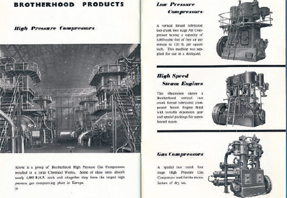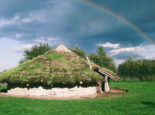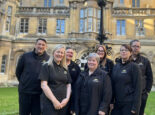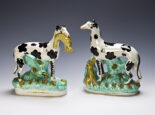Peter Brotherhood: a history
Peter Brotherhood: a history 1 2
[prev] …howitzers, submarine mines, depth charges, engines for tanks, motor boats to patrol the coast… It was pretty important stuff, and again, they just turned their hand to whatever the war effort needed, and as a result diversified even more.
IS THAT ABILITY – AND WILLINGNESS – TO DIVERSIFY PARTLY DOWN TO IT BEING A FAMILY FIRM, LED BY INDIVIDUALS WHO WERE FREE TO EXPERIMENT?
Definitely. They had made a car in 1905, which managed to do 9,000 miles without any trouble. They also made a tractor in 1923 that was powered without petrol. It needed a small amount of petrol to get it going, but after that was powered by wood, which in rural communities makes pretty good sense! Sadly, it didn’t last… We also see in the archives cases where someone needed something and approached Brotherhood to see if they could make it, and they did. The company had that kind of reputation. And not many companies could found and cast things on the scale Brotherhood could.
WHAT ABOUT BETWEEN THE WARS?
They make a variety of different things between the wars, experimenting a bit – that’s when the wood powered tractor comes along, and a wagon powered by steam. But in 1918 they had moved into making compressors, and that becomes the really big thing – which it still is. The Ministry of Munitions had asked them to make compressors, and they realised it was a good business to be in. They’ve been making them ever since. They made huge versions of these; there’s one on file here that is 3,800 brake horsepower. The other major change is that in 1937 they become a public limited company, and from that point on the family don’t have as much involvement in the running of it. But the name, and the tradition continues.
DID WORLD WAR II BRING FURTHER CHANGES?
During WWII they were making gun mountings and things like that. Then a gun sight factory got blown up, and the government went to Brotherhood and asked them to start making gun sights, which they did. They’re also making lots of very large components and engines at this time – for ships, for example. Pretty much the whole factory is given over to the war effort, with the company employing around 5,000 people.
IT MUST BE A DIFFICULT TRANSITION AFTER A MAJOR CONFLICT, TO SHIFT BACK TO ORDINARY BUSINESS AFTER YEARS OF SUPPORTING THE WAR EFFORT…
Looking at a catalogue from around 1950 we see them talking about their low pressure compressors, gas compressors, high speed steam engines, torpedo tubes, diesel engines, refrigeration plants… Although they diversified, several of the things mentioned there are things they’ve always made. There are certain things they got really good at. After the war they’re still making compressors, for example. But also they had their foundry and heavy machine shop, and so always had the flexibility to make almost anything that was needed.
WHY IS THIS ARCHIVE IMPORTANT?
It’s an important collection if you’re interested in the history of Peterborough – and especially if you’re interested in the history of industry in the city. It’s a very complete archive – you could write a very interesting history not only of the company, but also of Peterborough, at a time when the city is changing so much. The early 20th century is one of the most important periods in the city’s history, when it changes from a basically agrarian economy to being an industrial powerhouse, and Brotherhood’s is a key part of that. It’s also important for family historians. We have the wage books of the company, for example, so you can see when relatives worked for the company, how much they were earning, the hours they were doing and how the company changed during the seasons or during wartime. The archive is also important for railway historians, especially considering the Brunel links, and historians of military engineering. Often with business record you just get minutes and accounts, but here you have a lot of technical information which shows you in minute detail exactly how many of these machines actually worked – including the ones that never quite made it. Once it’s catalogued, people will be able to come and access this material in the reading room of the Central Library any time the archives are open.
WHAT ELSE DOES THE ARCHIVES SERVICE OFFER?
People can come in to research their family history, and we give them pointers to get them started, whether it’s local to Peterborough or further afield. We run family history courses, getting people interested. The internet has obviously revolutionised this whole area, but that means that if you come into the archives we can potentially get you doing your family history way back into the 15th century quite quickly and easily. And if your family is local, then we have all sorts of family history records that you can use. We have records of Peterborough schools going back into the Victorian period, so you can see exactly what your ancestors did at school, read the log books and find out what it was like being at school in that period.
‘We get everything from people wanting to find out about an event back in the 19th century, to wanting to see a newspaper from three years ago because they were pictured in the paper!’
A lot of people now are also doing house history, and we have a lot of records relating to that. If you want to know the history of your street or the history of your house, we’ve probably got plans of your house going back into the Victorian period, if it’s of that period, and we have a good photographic collections, so you can browse images of Peterborough in days gone by. You can look at the newspapers from 1854, when the first newspaper started in Peterborough, right through to the present day. We get everything from people wanting to find out about an event back in the 19th century, to wanting to see a newspaper from three years ago because they were pictured in the paper! You can print out from the papers, too. Then we’ve got older records of the city – our earliest record is 1245, which is a title deed relating to land owned by one of the medieval guilds in the city. We’ve got the city council’s archives, and the archives of various other bodies that looked after the city prior to that. Essentially, you should be able to find pretty much anything to do with the written or pictorial history of the city in the archives.
To view any of the collections held by the Archives Service, either drop into the Archives Service in the Central Library or ring the staff on 01733 864160.
To find out more about the Archives Service and what it offers, go to www.vivacity-peterborough.com/libraries-and-archives/archives/
Peter Brotherhood: a history 1 2
















